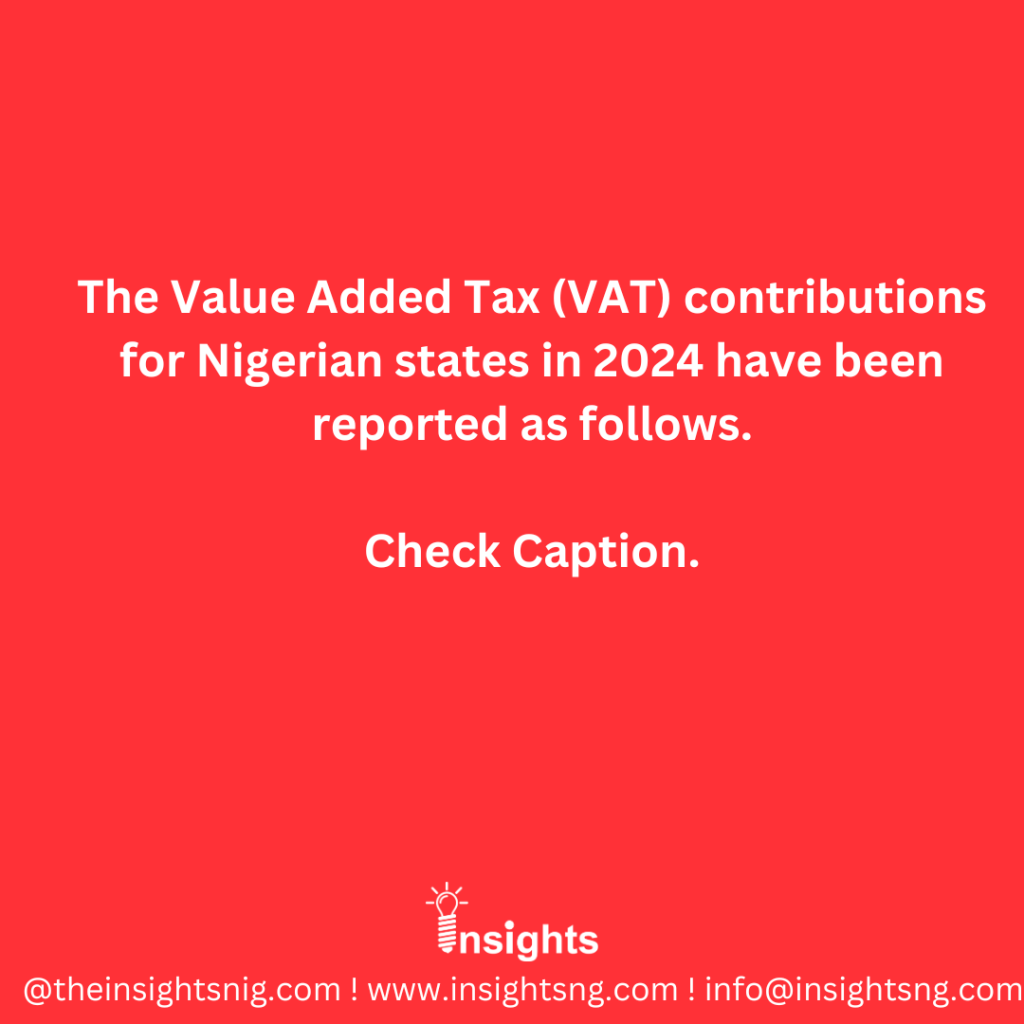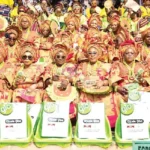VAT Contributions Across Nigerian States in 2024: Lagos Leads the Pack
The Value Added Tax (VAT) contributions across Nigerian states in 2024 reveal significant disparities. With Lagos contributing over half of the nation’s VAT revenue, the data underscores the varying economic capacities of states. These figures have sparked discussions on whether Nigeria’s revenue-sharing formula requires adjustment to ensure fair distribution and development.
Top Contributors: Lagos Dominates
Lagos State stands as the clear leader, generating N2.75 trillion, which accounts for approximately 54% of the total VAT revenue. Rivers State follows with N832.69 billion, while Oyo State is third with N272.41 billion. These three states together contribute a substantial portion of the nation’s VAT pool, highlighting their strong economic activities and consumption patterns.
Other States: Moderate and Low Contributions
After the top three, states like Kano (N77.76 billion) and Delta (N73.39 billion) represent moderate contributors. On the lower end of the spectrum, states like Kebbi (N8.77 billion) and Imo (N4.38 billion) reflect limited economic activity or smaller consumption bases.
Regional Economic Disparities
The VAT contributions emphasize the significant economic gaps between Nigeria’s regions. While the South-South and South-West dominate the revenue chart, several Northern states contribute far less. For instance, states like Yobe (N19.79 billion) and Zamfara (N17.83 billion) fall behind despite their large landmass and population.
Revenue disparities among Nigerian states are a stark reminder that balanced development requires equitable policies. It’s not just about who contributes the most but ensuring every region thrives.
Revenue Allocation Debate
These disparities have reignited calls to reassess Nigeria’s revenue-sharing formula. Many argue that states generating higher revenues should retain more of their earnings to foster local development. However, others stress the importance of federal redistribution to support less economically active regions.
The 2024 VAT contributions shed light on Nigeria’s uneven economic landscape, with Lagos at the forefront. While this highlights the state’s economic vibrancy, it also raises questions about equitable development across the country. Revisiting the revenue allocation framework could be key to achieving balanced regional growth.











